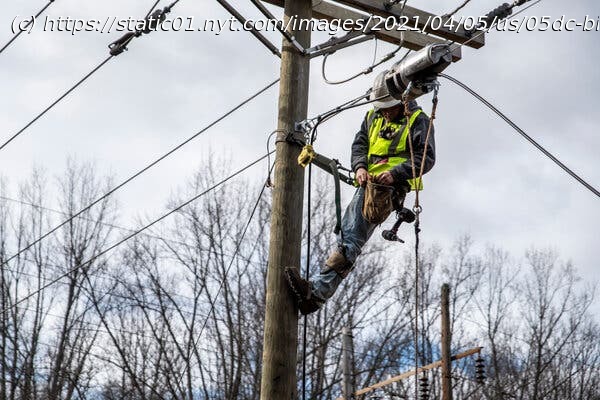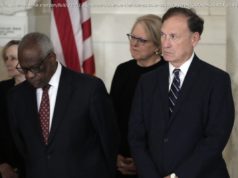Republicans say the White House is tucking liberal social programs into legislation that should be focused on roads and bridges. Administration officials say their approach invests in the future.
The early political and economic debate over President Biden’s $2 trillion American Jobs Plan is being dominated by a philosophical question: What does infrastructure really mean? Does it encompass the traditional idea of fixing roads, building bridges and financing other tangible projects? Or, in an evolving economy, does it expand to include initiatives like investing in broadband, electric car charging stations and care for older and disabled Americans? That is the debate shaping up as Republicans attack Mr. Biden’s plan with pie charts and scathing quotes, saying that it allocates only a small fraction of money on “real” infrastructure and that spending to address issues like home care, electric vehicles and even water pipes should not count. “Even if you stretch the definition of infrastructure some, it’s about 30 percent of the $2.25 trillion they’re talking about spending,” Senator Roy Blunt, Republican of Missouri, said on “Fox News Sunday.” “When people think about infrastructure, they’re thinking about roads, bridges, ports and airports,” he added on ABC’s “This Week.” Mr. Biden pushed back on Monday, saying that after years of calling for infrastructure spending that included power lines, internet cables and other programs beyond transportation, Republicans had narrowed their definition to exclude key components of his plan. “It’s kind of interesting that when the Republicans put forward an infrastructure plan, they thought everything from broadband to dealing with other things” qualified, the president told reporters on Monday. “Their definition of infrastructure has changed.” Mr. Biden defended his proposed $2 trillion package, saying it broadly qualified as infrastructure and included goals such as making sure schoolchildren are drinking clean water, building high-speed rail lines and making federal buildings more energy efficient. Behind the political fight is a deep, nuanced and evolving economic literature on the subject. It boils down to this: The economy has changed, and so has the definition of infrastructure. Economists largely agree that infrastructure now means more than just roads and bridges and extends to the building blocks of a modern, high-tech service economy — broadband, for example. But even some economists who have carefully studied that shift say the Biden plan stretches the limits of what counts. Edward Glaeser, an economist at Harvard University, is working on a project on infrastructure for the National Bureau of Economic Research that receives funding from the Transportation Department. He said that several provisions in Mr. Biden’s bill might or might not have merit but did not fall into a conventional definition of infrastructure, such as improving the nation’s affordable housing stock and expanding access to care for older and disabled Americans.






